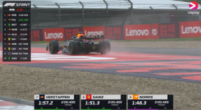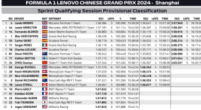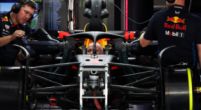F1 News

Pat Symonds looking for “cooperative research” from teams for 2025/26 engines
Formula 1 technical consultant Pat Symonds has spoken about the possibility of cooperative research from teams over future power unit regulations for 2025/26.
In 2021 F1 is set for a major overhaul of its sporting, technical and financial regulations, with cars looking different due to different aerodynamic specifications and a $175 million budget cap for teams to spend on their cars.
The current V6 hybrid engines are to still be used until at least 2024 but Symonds is hoping to cooperate with teams for the next power unit design.
“We’re getting a lot of cross-platform sharing, and our next big project is the 2025-2026 power unit, and what I’m trying to do with that is to see if we can get something similar going on,” Symonds said at Autosport International 2020.
“Probably within F1 - within my organisation - I don’t think we put together a group in the same way we did with aerodynamics, because it’s a very different thing.
“But I’ve spoken to a couple of the power unit manufacturers already about would they be prepared to do some cooperative research in certain areas.
“So we are seeing some sea changes not just in Formula 1 regulations, but perhaps more importantly in the way people think.”
The regulations for 2021 have mainly been introduced to bring closer racing to F1, rather than a few teams constantly winning.
Symonds says change is usually met with resistance from teams but those that haven’t been at the front supported the introduction of the new regulations.
“In terms of resistance to change, unfortunately everyone is resistant to change. It seems to be a natural thing. There are very few people who welcome change,” he added.
“Interestingly, successful people tend to welcome change and deal with change a lot better than others.
“With the teams, it’s a little bit different because you’ve got to remember the huge investment involved as well.
“When we were working on the 2021 regulations, I have to say that those at the front were more resistant, and those at the back were less resistant – well, not less resistant, they were fully supportive.”



















































